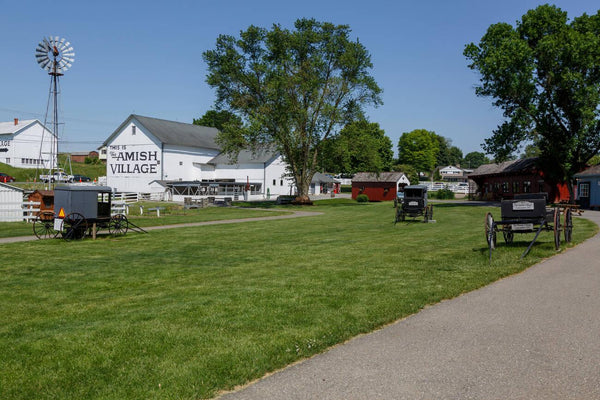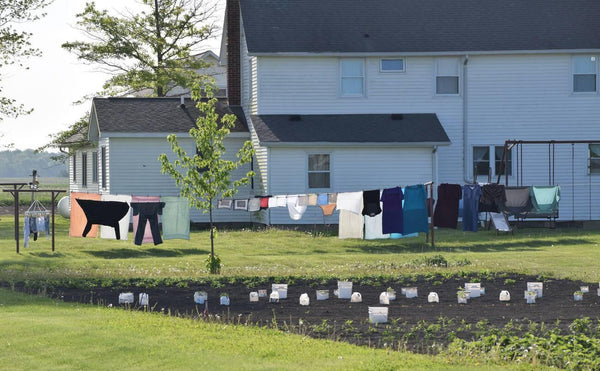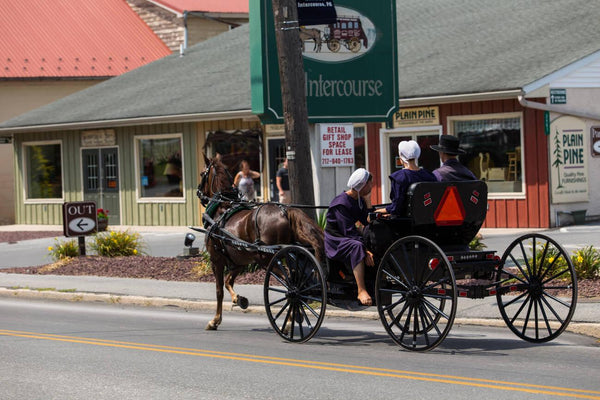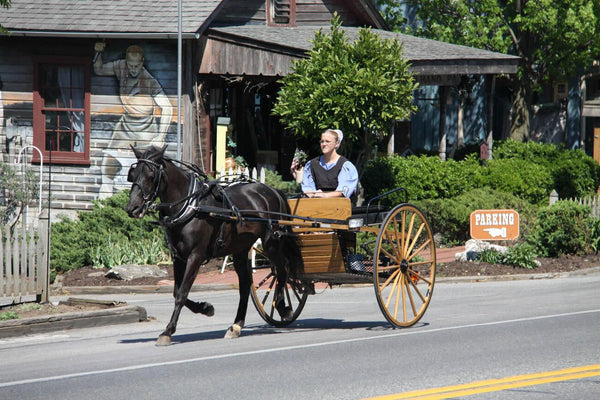Due to the secretive nature and isolated nature of Amish communities, many people believe they don’t pay taxes.
While many Amish communities tend to be private and not get involved with anything government related, the Amish respect and consistently abide by tax laws that are appropriate to their communities.
These taxes include but are not limited to sales, income, property, and public school taxes. While the short answer is that Amish do pay taxes, the long answer is a bit more complicated.
Depending on the community and which state they reside in, there may be changes and exemptions to certain taxes or different laws they abide by.
Amish communities can often do taxes themselves, while many communities hire outside accountants to do it for them. In larger Amish communities, there may even be Amish accountants and bookkeepers.
What this article covers:
Which Taxes Do the Amish Pay?

Amish communities pay taxes that apply to their communities and themselves, so while they are exempt from a few, there are still taxes they do pay.
Many people assume that Amish separate themselves from government entities and therefore are exempt from paying taxes, but while it’s true that the Amish don’t stand for the national anthem and they don’t salute the American flag, they still pay their fair share in taxes.
Many Amish communities may even find it insulting when outsiders assume they do not pay taxes, as they are law-abiding citizens who understand that taxes are important and necessary in many circumstances.
Income Taxes
Federal and state income taxes apply to Amish communities. The amount depends on the amount of money an individual earns in a year.
Amish individuals and communities earn a living through various means, often through manual labor, such as farming and selling homemade products.
Many Amish families and individuals are business owners with successful businesses providing support and boosting the economy of their communities.
Property Taxes

Property tax in Amish communities is quite prevalent due to the average amount of land owned by the average Amish family. One of the main sources of income in Amish communities is farming which means property and land taxes are more than the average person.
Property taxes paid by Amish communities do not only fund farming land but also public services, such as public schools and libraries.
Due to the size of many Amish families’ land, it is a common problem that many families struggle with paying their land tax.
This problem or struggle comes from the fact that the tax applied to the land doesn’t take into account how much money gets made off the land, or what it is used for.
Many Amish farmers are not commercial farmers and do not make a lot of money off their land. The purpose of their farms is to provide for their families and communities.
Sales Taxes
Sales taxes apply to any items purchased. This tax applies to the sale of products that affects all Amish communities.
Many Amish however, don’t pay much in sales taxes due to their communities being very self-sufficient and self-providing. Amish communities don’t buy many goods from major retailers or retail establishments.
Most of what they sell and purchase inside their communities, such as rustic bread boxes, vintage Amish dolls, or woven harvest baskets, aren’t affected by taxes as they’re sold within the community to other Amish families.
All sales taxes apply for the sale and purchase of goods outside the community. This means that when items like their two-pie carriers sell outside of the community, or even on the rare occasions that they sell their easter baskets online, sales tax is applicable.
Amish communities pay all applicable taxes when visiting establishments or stores to purchase goods or services.
Are the Amish Exempt from Any Taxes?
Some facets and beliefs within the Amish lifestyle allow them to be exempt from certain taxes.
Many Amish religious beliefs exempt them from paying certain taxes regardless of whether it’s written in law.
Social Security
Amish individuals don’t pay social security tax even if employed by a non-Amish employer. Their communities provide everything for them, including healthcare.
While Amish individuals don’t pay social security tax, adults in the community have Amish social security numbers.
Depending on the community, there may be individuals in the community that are Amish voters. Some of them even have IDs, although there isn’t all that much use for an Amish identity card and passport.
While most try to separate themselves from politics, it’s rare in Amish communities for a rule to be enforced that prevents people from voting.

Many people often ask, are the Amish socialists? or communists? Or even capitalists? But a more accurate term would be communitarian.
The Amish separate themselves from politics and therefore don’t necessarily fall under any label that modern society places on them.
In Amish communities, it’s a core belief that individuals and communities should provide for themselves to the best of their ability.
Gas Tax
The gas tax is a big one that doesn’t affect many Amish communities, mainly because they don’t use many machines or vehicles.
In Amish communities, the key form of transport is by horse-drawn buggy and while some businesses may need machinery to operate, they often find ways or use machines that are more dated than modern technology that uses gasoline.
Another tax that many Amish don’t pay is what is called the “sin” tax. This tax applies to items and products sold to the public that are considered morally hazardous.
Goods and services such as liquor, cigarettes, and gambling fall under this tax, the Amish don’t allow liquor or any kind of tobacco product in their communities due to religious beliefs.

Conclusion
Amish communities are known for separating themselves from the modern world which leaves many to assume things about their communities.
Because of this, it’s normal to assume that they separate themselves from the government and taxes.
Despite what many non-Amish people may believe, the Amish pay their fair share in taxes. In certain cases, they even pay more than the average person.
Unfortunately, they don’t always benefit from the money they give, but they feel it’s much more important to do their duty and pull their weight.
Did You Find Our Blog Helpful? Then Consider Checking:
- Do the Amish Receive Stimulus Checks?
- Shaker vs Amish
- Dunkards vs Amish
- Are the Amish Catholics?
- Do Amish Go to Doctors
- Amish Health Secrets
- Amish Healthcare
- Amish Lifestyle
- What Do Amish Do for Fun
- How Do the Amish Keep Food Cold
- Why Is Amish Food So Good
- Amish Technology
- Do Amish Use Electricity
- Do Amish Use Cell Phones
- Do Amish Drive Cars



